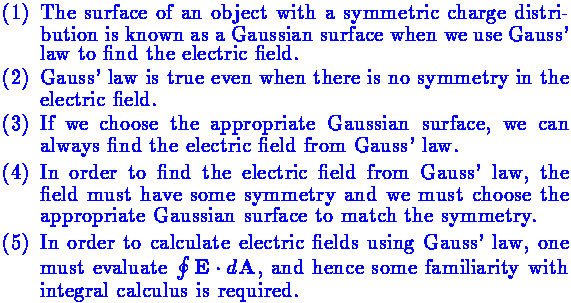


(1) FALSE
A Gaussian surface is an imaginary surface and it is located
where ever we choose. Frequently, we use Gauss' law to calculate an
electric field, and then we locate the Gaussian surface (or a part
thereof) at the position where we want to find the E field. Of course,
a Gaussian surface might happen to coincide with the surface of a
physical object if we need to know the E field at the surface of that
object.
(2) TRUE; (3) FALSE
Gauss' law is always valid; however, it does not offer a quick and
convenient strategy for finding the E field if symmetry is not present.
(4) TRUE
(5) FALSE
Granted, we need to evaluate the flux, but in all cases where Gauss' law
is useful, the integral reduces to the E field we are interested in, times
the standard formula for the surface area of a sphere, or the curved part
of a cylinder, or maybe a circular disc.
